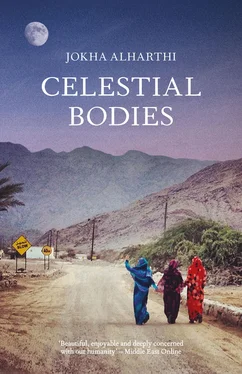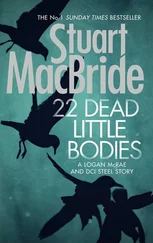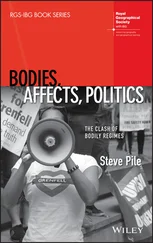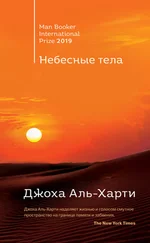When Salima had finished arranging her daughter Asma’s wedding things she closed the door to the world outside and broke down in sobs. She felt a sudden longing for her father and mother.
Salima had given birth to Khawla, the youngest of her girls, just as her own mother was giving up her soul. Really, though, her mother had died a long time before, ten years at least, when a messenger appeared to inform her that her only son, Muaadh, had died as a martyr in the war of Jabal Akhdar. She hadn’t been given a chance to say her goodbyes.
When Muaadh fled the home of his uncle Shaykh Said, before the end of his sixteenth year, his uncle was furious. So, then, his hunches about the boy had proven true! He’d known that boy would split the rod of obedience to join the tribes allied with the Imam, thumbing his nose at his uncle’s alliance with the opposing tribes.
Whenever people were gathered, Shaykh Said made certain to proclaim loudly that he bore no responsibility for his brother’s son. He had no guilt. Does that idiot believe taking shelter in al-Jabal al-Akhdar with the Imam and his group will save him, or any of them, from the warplanes of the English? he repeated in front of anyone with ears to hear him. Those English have planes and weapons. What do they have, in the Green Mountain?
The Sib Treaty, signed in 1920, divided Oman into an interior ruled as an Imamate and a Government of Muscat that retained its traditional jurisdiction over much of the coastal plains. Muscat’s Sultan was financed by the English. The Treaty was respected for quite a long time. But then the Sultan signed an agreement with a British firm for exploratory oil drilling in the Fahud desert, which was well within the Imamate’s territories. The company formed its own defence unit, which came to be known as the Muscat-Oman Infantry. And so imperialist greed lit the wick of war, when the company army marched into Ibri and soon began strafing territories loyal to the Imami state, in the regions of Nazwa and Nakhal. In 1955 the Imam Ghalib al-Hana’i and his followers — warriors drawn from allied tribes — were forced to take refuge in the Green Mountain.
That’s when Muaadh slipped out of al-Awafi and joined the fighters in the Jabal. He stayed there through 1959, one of a band of guerrilla fighters harassing the Royal British Air Force defences. The resistance had only their traditional weapons, but at least they could keep others out of the Jabal. Muaadh was tasked with lighting fires in deserted areas to convince the English that there were fighters there; the idea was that they would use up their ammunition mounting attacks against phantom platoons. One night Muaadh stepped on a small mine as he was returning from a mission. He exploded into fragments, one of more than two thousand martyrs who died in the war to control the Jabal. There wasn’t even a body to return for his mother to mourn over.
She received the news of his death in silent submission. She arranged the funeral rites as well as she could in her modest circumstances, for his uncle refused to offer the slightest help or to mourn. She died, though no one knew she was dead. Every day and every night, for ten years, she died a little more. She breathed and ate and drank but she was dead. She spoke to people and walked among them, dead. Only much later did her body give up its already-deceased spirit, its dead spirit, no longer forced to pretend, to play at being alive.
My head is under water. This headache lays into me every time I have to fly. I feel confused and unable to focus, and everything in front of me appears to be submerged in water. Then I sense myself being flipped upside down. I’m in a well, head down, and that heavy palm-fibre rope is wound around my body. My skull crashes against the murky black interior wall. I’m terrified that the rope will unravel, will weaken, will break and drop me to the very bottom. Why did I steal the gun? Why did I want the magpies so badly?
From my underwater head pour the many-coloured plastic blocks that Muhammad plays with. He has to have them lined up, no gaps. If there is any alteration to the way they are arranged, even one block, he screams and screams, no pauses. Screaming, Muhammad screaming.
When Uncle Ishaq’s wife went into the bathroom of their home in Wadi Aday to wash before the dawn prayers she found her son in there. Pure Marwan’s veins were cut open with his father’s dagger. She screamed and screamed.
When my father gave up his soul in the Nahda Hospital, Zarifa screamed and the sound went on and on. I didn’t scream then, I didn’t cry. Only when he hung me head down in the well.
I can see myself as a little child. A boy but like a little man in disguise, wearing a man’s dagger and a perfectly fitted turban, and brand-new shoes. My father’s hand leads me somewhere far away. To Ibri. We are responding to the invitation of a shaykh there. Habib was with us — it was before he fled, of course — and so was Suwayd and the Bedouin who owned the two camels we rode. Suwayd’s oud was not with us, though; perhaps it hadn’t yet come to him. It must have been before the jinni woman fell for him, offering to answer one single wish. The oud. The bewitching oud whose sad tunes rubbed across my childhood and scored the raw loneliness of my adolescence. The oud was the gift of the jinni woman, and so Suwayd couldn’t play any other instrument, only that one, solitary lute. No, there was no oud with us on that trip. There was a cloth bundle holding dried shark flesh that people ate on journeys, and some onions, and a box of dates. There was a waterskin, a lot of sand, and singing. Habib was singing, in an unfamiliar language, Baluchi maybe? It was cheerless singing and his voice would choke, coming out in a wail, when he reached some refrains. It sounded more like crying than singing. Before he fled, Habib told Zarifa that songs were the only thing left in his memory to keep his language alive for him. That’s why he sang. If he didn’t have songs in there, all the hollow spaces would be filled with rage.
There I was, a young fellow disguised in the uniform of his elders, the sole representative of my father’s seed, paraded for the benefit of the Shaykhs of Ibri. In the souq, though, I could hardly resist reverting to my childhood state, faced with the heaps of sweet coconut spread across the stone benches to dry, and well within my reach. But I had to return to the awful dignity of my early manhood the next day, at the big midday meal with these men. I tried to sit exactly the way old men sit in the majlis meeting place, my weight on one leg while I folded the other leg beneath me, watchful, knowing I mustn’t change my position no matter how numb my legs would go, because I had to show the hardness of men. I did extend my hands to the enormous platter of rice around which we sat, but I felt so shy that my fingers could hardly grasp anything, bringing only a few grains of rice all the way back to my mouth. Some tiny bites later I finally summoned enough boldness to reach the meat piled up over the rice, securing a tiny morsel. I tried to make certain my father saw it. When the platter was lifted away I was hungry but happy, certain that my father would be satisfied with me. He had cautioned me earlier: the Shaykh’s family, neighbours and slaves would be waiting expectantly for their share, whatever remained of the same platter of food that had been offered to us.
My head wasn’t hanging upside down, then, and it wasn’t submerged in water. My brain and heart weren’t searching desperately for a sliver of land somewhere, anywhere from Muscat to Sib, where I could build the house of my wife’s dreams. We couldn’t manage to get the lot she really liked. The municipal authorities refused, claiming that exactly this bit of land was slated for future use: it fell within the area designated for a new rapid-transit light rail system. The planning document had already been signed off at the highest level, by the Sultan’s Cabinet itself.
Читать дальше












